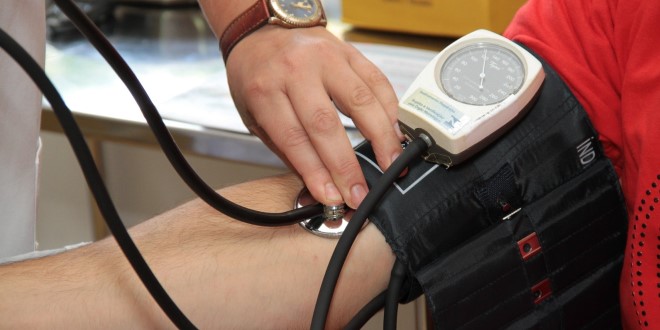By Charles Harvey, MSN, RN, CNOR & Pam Rillstone, PhD, APRN, CNS-BS, FT
Ever wonder why some days seem worse than others? Maybe a recent doctor’s visit revealed a blood pressure higher than expected even though you feel that you’re doing everything possible to stay healthy.
Feeling this way is common, and while physical problems like high blood pressure may have genetic predispositions, it may also reflect how you interact with your environment. We live in such a fast-paced, technologically based society that we often do not listen when our bodies tell us to slow down. We may seek a quick fix to health issues due to a busy lifestyle. As a result, our medicine cabinets are commonly filled with medications to treat anything from headaches to upset stomachs. But when we take a moment to assess all possible factors, one common theme surfaces. Physical health is directly tied to spiritual and emotional well-being.
No Quick Fix
There is seldom a long-term quick fix. Many times, medications, over-the-counter or prescribed, don’t work or may take weeks to have the desired effect. What do we do in the interim? Traditional Western medicine tends to focus on ways to heal the disease process, whereas integrative holistic practices focus on healing the whole body and maintaining health.
Much research has gone into medications that might decrease or relieve symptoms, revealing that medications are not always the only answer. Most have side effects, some serious. What if we found ways to embrace maintaining health rather than just responding to symptoms? What are we doing on a daily basis to take care of ourselves?
That is what holistic practices are all about– taking care of the whole body on a regular basis. It’s not mysterious. In fact, these practices aren’t new and include things as basic as getting adequate amounts of rest,* being mindful of what and why we eat, aiming for a more healthy balanced diet, daily activity or exercise, aromatherapy, essential oils, mindful meditation, and attempting to turn off external stress factors that have negative influences.
Studies show that combining mindful meditation with regular exercise and diet control improves sleep patterns, enhances memory, and lowers blood pressure.
Carlos
A 45-year-old man with a busy work-life balance, Carlos did not realize his blood pressure was out of control. He ended up in the emergency room with a major headache and was told that his rise in blood pressure was related to weight gain, age, and dietary choices. The solution was to take medications to lower his blood pressure and cholesterol, which was also elevated. During his annual checkup with his Nurse Practitioner (NP) several years after starting medication but making no lifestyle changes, Carlos’ blood pressure was dangerously high.
While one solution might have been increasing his medications, the NP suggested reviewing his eating habits and other activities. After a week of collecting notes, Carlos recognized that cutting out fast foods, increasing physical activities, and spending time away from electronic devices after work at least twice a week might help, along with his prescribed medications.
In addition, his NP recommended mindful meditation for 10 minutes each morning before work and before going to bed at night. By implementing these plans, Carlos experienced a change in behavior concerning his health. After several months of increased activity and healthier food choices, his weight and blood pressure decreased dramatically. On his follow up visit, the NP reduced some of Carlos’ medications due to more normal readings.
Evelyn
Evelyn went to her doctor with symptoms of major depression which had worsened over the past six months. She became so depressed, she didn’t want to get out of bed in the morning. She missed work over the past two months and when she was there, she was non-productive. Her physician prescribed an antidepressant, which would take two to four weeks before having a therapeutic effect. She was also encouraged to seek counseling.

Evelyn found a nurse practitioner (NP) certified in holistic nursing. She began to use several integrative practices—a lavender diffuser at her bedside, five-minute daily meditations, breathing exercises, becoming aware of food intake and making healthier choices, and walking her dog, starting with just 10 minutes a day. Within the first week, she began to feel relief from her overwhelming feelings of doom. She began sleeping better, having less difficulty getting up in the morning, eating better, being able to focus more at work, feeling less anxious, and even began increasing the amount of time she meditated and walked her dog. Over the next several months, she was back to feeling like herself again.

Evelyn and Carlos learned that not all problems can be solved simply by taking a pill. With the help of a healthcare professional, they made changes in their lifestyles to incorporate more holistic practices, in combination with medication, which resulted in positive outcomes.
Today’s column is co-authored by Chuck Harvey, who specializes in Adult Health and PeriOperative Nursing, and by Pam Rillstone, who specializes in Psychiatric Mental Health Nursing in JU’s Brooks Rehabilitation College of Healthcare Sciences.
*The National Sleep Foundation recommends seven to nine hours per night for adults.
 Wave Magazine Online Jacksonville University News Hub
Wave Magazine Online Jacksonville University News Hub
